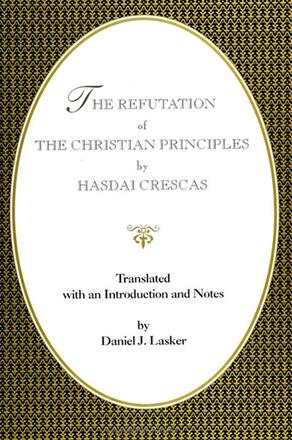
The Refutation of the Christian Principles
Alternative formats available from:
Description
During the fourteenth century, there was a general demoralization in the Jewish community in Spain. Many Jews were on the brink of conversion. Rabbi Crescas met the Christian challenge by writing this pithy book refuting the principles of the Christian religion. He argued that the basic Christian doctrines, namely, original sin, salvation, trinity, incarnation, virgin birth, transubstantiation, baptism, the messiah, a new covenant, and demons, contradict human reason, thereby calling into question Christianity's claim to be a true religion. The Refutation is an important document of the medieval Jewish-Christian debate and is also especially important for the history of Jewish philosophy in general.
Daniel J. Lasker is Associate Professor of Jewish Thought at Ben-Gurion University of the Negev in Beer Sheva, Israel. He is the author of Jewish Philosophical Polemics Against Christianity in the Middle Ages.
Reviews
"The translator is the world's preeminent authority on medieval Jewish philosophical polemics against Christianity. The text is probably the most important sustained work in this genre, particularly in light of Crescas's great importance as a philosopher and the intensification of missionary efforts in late medieval Iberia." — David Berger, Brooklyn College and the Graduate School, City University of New York
"It is a special virtue of Lasker's annotated translation that it makes available to a more general readership a work that would otherwise be known only to a very small group of specialists. At a time when humanistic studies turn more and more in a comparative direction, this is a significant accomplishment." — Arthur Hyman, Distinguished Service Professor, Yeshiva University
"Lasker answers the kinds of questions that scholars would expect of have answered and at the same time provides guidance for the interested non-specialist. He identifies Christian and Jewish sources, refers to the relevant secondary literature and turns to such Christian authors as Augustine, Anselm, and Aquinas for authoritative accounts of the Christian doctrines against which Crescas polemicizes.